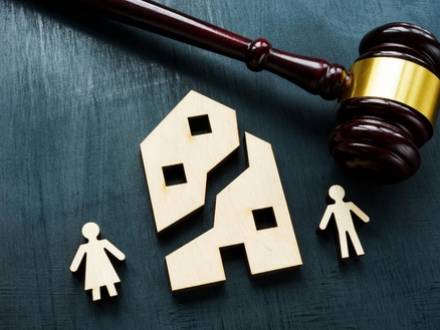Uncontested vs. Contested Divorce: What You Need to Know
 Divorce is never easy, but understanding your legal options can help you take back control during this emotionally difficult time. One of the first and most important choices you will face is whether your divorce will be uncontested or contested. These two paths can look very different when it comes to time, cost, and emotional stress. Knowing the difference and which path fits your situation can help you make informed decisions. An Illinois family law attorney can guide you through the process and work toward the best possible outcome for your future.
Divorce is never easy, but understanding your legal options can help you take back control during this emotionally difficult time. One of the first and most important choices you will face is whether your divorce will be uncontested or contested. These two paths can look very different when it comes to time, cost, and emotional stress. Knowing the difference and which path fits your situation can help you make informed decisions. An Illinois family law attorney can guide you through the process and work toward the best possible outcome for your future.
What Is an Uncontested Divorce?
In Illinois, you can file for a no-fault divorce based on irreconcilable differences. This allows couples to divorce without having to prove any wrongdoings or disagreements.
Therefore, couples can file for an uncontested divorce if they are in agreement about all key issues. Because nothing needs to be resolved in court, uncontested divorces tend to be faster, less expensive, and less stressful.
To qualify for an uncontested divorce, both parties must agree to the divorce itself and to all terms related to property, finances, and parenting responsibilities. A family law attorney can help prepare and review the necessary documents to ensure everything is legally sound.
When Does a Divorce Become Contested?
A divorce is contested when spouses cannot agree on at least one major issue. Common points of contention include:
-
Child custody and visitation arrangements
-
Division of high-value or complex assets
-
Allegations of marital misconduct
-
Requests for spousal maintenance
Contested divorces may involve court hearings, discovery of financial records, and even testimony from experts or witnesses. Depending on the complexity of the issues and the level of conflict, these cases can take months or years to settle.
How Does the Divorce Process Differ?
The legal process in an uncontested divorce is typically straightforward. After filing a petition for dissolution of marriage and submitting a signed marital settlement agreement, the court will review the documents. If everything is in order, the divorce will be finalized with minimal court involvement.
Contested divorces, however, involve a longer and more formal legal process. As a general overview, it typically proceeds in the following order:
-
One spouse files a petition for divorce
-
The other spouse files a response, often disputing some claims
-
Both parties may engage in discovery and pretrial motions
-
A judge may order mediation to encourage settlement
-
If no agreement is reached, the case proceeds to trial
This process can be emotionally and financially draining, so many try to pursue settlement whenever possible.
Which Option Is Right for You?
There is no one-size-fits-all answer. If you and your spouse are on the same page about key decisions, an uncontested divorce may offer a smoother path forward. On the other hand, a contested divorce may be a better route if you and your spouse have significant disagreements or complex legal issues.
Contact a Kane County, IL Family Law Attorney
Understanding your legal options is essential if you are considering divorce. Contact a St. Charles, IL divorce lawyer at Goostree Law Group to discuss whether an uncontested or contested divorce is right for you. Call 630-584-4800 to schedule a free consultation and get the guidance you need during this challenging life transition.











